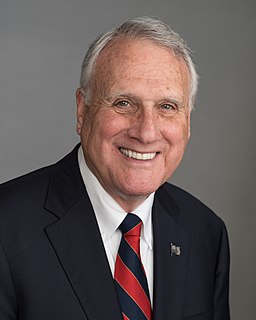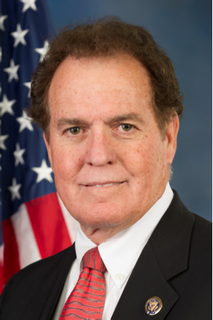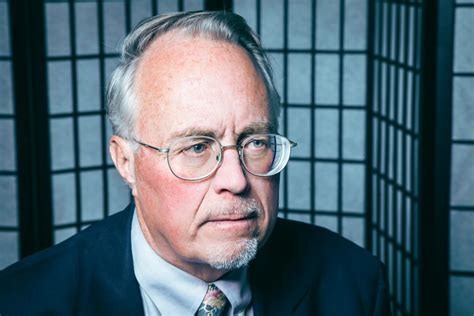A Quote by Wendy Long
Having been on the front lines of the confirmation battles involving Chief Justice Roberts and Justice Alito, I know firsthand what is at stake when the Senate exercises its 'advise and consent' power over federal judges.
Related Quotes
In my opinion, Chief Justice Roberts put it best during his recent confirmation hearings. And he said, and I quote, "The framers were not the sort of people, having fought a revolution to get the right of self-government to sit down and say, 'Well, let's take all the difficult issues before us and let's have the judges decide them.' That would have been the farthest thing from their mind," however, I fear that the Supreme Court forgets this advice.
It is extraordinary that each of the three individuals this president [ George W. Bush] has nominated for the Supreme Court - Chief Justice [John] Roberts, Harriet Miers and now Judge Alito - has served not only as a lawyer for the executive branch, but has defended the most expansive view of presidential authority.
I just wanted to begin by mentioning that the nominee for secretary of the department of labor will be Mr. Alex Acosta. He has a law degree from Harvard Law School, great student. Former clerk for Justice Samuel Alito. He has had a tremendous career. He's a member and has been a member of the National Labor Relations Board and has been through Senate confirmation three times, confirmed. I have wished him the best.
When Ruth Bader Ginsburg came in front of the Senate and was approved 96-3 to be on the Supreme Court to replace conservative justice Byron White. This is in 1993.Now, Justice Ginsburg, it was noted earlier, was a general counsel for the ACLU, certainly a liberal group. It was abundantly clear during the confirmation hearing that Ginsburg would swing the balance of the court to the left.But because President [Bill] Clinton won the election and because Justice Ginsburg clearly had the intellectual ability and integrity to serve on the court, she was confirmed.
Ajamu Baraka is a human rights advocate and an international human rights advocate, who's been defending racial justice, economic justice, worker justice, indigenous justice, and justice for black and brown people all over the world, and in the United States has been helping to lead the charge against the death penalty here, and is an extremely eloquent and empowering person. And one of the great things about running with him is that we speak to all of America.
The issue of gay marriage has reached the Supreme Court and observers are analyzing every detail to predict how each justice will vote. Experts say Chief Justice John Roberts is likely to rule in favor of gay marriage based on the fact that he spent Tuesday's hearings watching the Tony Award nominations.
Politically or ideologically oriented evaluations of Chief Justice Rehnquist should not overlook what a successful and popular chief justice he was within the Court as the justices' presiding officer, .. The contrast between Rehnquist's undeniably happy Court and that of his predecessor, Warren E. Burger, could not have been greater.




































